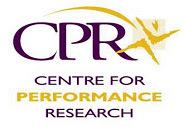Dear Professor Smith:
As an academic associated with an American institution of higher learning and a chair of the Department of Theatre Arts and Dance, I am pretty well versed in the need to prioritize the requests for funding in the arts in the time of shrinking resources in the post-2001 culture of anxiety and fear, when Anglo-American practicality and expediency are used not only to fight the global war on terrorism, but also to camouflage the forces that define and set the limits to what is possible and can be done.
It is in this context that I am writing to you about the Centre for Performance Research, whose funding structure may be altered by the Arts Council of Wales. As you are well aware, we are all faced with difficult decisions within the current financial climate. This is the reason why it is impetrative that we pay attention to how these decisions are framed; how they are rationalized; what conditions make it possible for these decision to structure what is represented, how it is represented, and what it is represented; and, finally, it is impetrative that we pay attention to what will be lost in the process of constructing a new format for the culture industry, which, using a capitalist or entrepreneurial model, has substituted 'front-line activities' for the older 'new' (read: with a new
use-value) category.
I believe that it is our ethical responsibility as academics, administrators, and educators to explore and question the dominant modes of cultural operations. If we fail to do so, indeed, as Walter Benjamin once said, the documents of our culture may as well be the documents of barbarism.
The Centre for Performance Research is unique organization, which, for over thirty years, has escaped the confines of traditional thinking about the arts by continuously forging new modes of thinking about the arts, designating new terminology describing how we critically and physically/performatively relate to what is going on not only in theatre, performance, and performance research, but also, and maybe more important, in the environment that surrounds us. Firmly rooted in Wales, and always celebrating Wales, which by many is still perceived on the periphery of Europe, the Centre for Performance Research has been actively engaged in seeking that which makes the marginal central and exists on the border between different art forms, between different social actions, different political ideologies, and different aesthetics. By so doing the Centre for Performance Research is of very few academic and performance sites in the world which disturbs, illuminates, and challenges the norm, the purpose, or the predictable. It can perform this function only because of the unique support, the Centre has received up till now. If this support is altered-that is, if the Arts Council of Wales will switch the funding mechanism from revenue funding to project funding-the Centre for Performance Research will lose its status and become one of many producing organization, which are now mushrooming in England, subscribing to the American model of arts management.
Please consider the following: having focused on that which goes beyond the 'ordinary' realm of established interests and differences, beyond the 'ordinary' realm of approved knowledge or beyond the 'ordinary' realm of theoretical innovations which persist only through the proclamations of those who position themselves as the subjects of a marketable truth, the Centre for Performance Research compels us to envision a new mode of being which brings to the fore that something which escapes the limits of present intelligibility or instrumental culture-of that which is thinkable or performable right now.
The stakes are high.
Changing a funding model is a political decision as well as an artistic one. If the Arts Council of Wales wishes to follow into the footsteps of other English and American arts management organizations, nothing will stop that. If, however, there is an opening to go beyond the ordinary realm, I would strongly urge the Members of the Arts Council of Wales to rethink their decision regarding the Centre for Performance Research and ponder over the questions which I posed at the beginning of this letter.
Michal Kobialka
Professor and Chair
Department of Theatre Arts & Dance
University of Minnesota
Michal Kobialka is Chair and Professor of Theatre at the Department of Theatre Arts & Dance at the University of Minnesota. He is the author of a book on Tadeusz Kantor's theatre, A Journey Through Other Spaces: Essays and Manifestos, 1944-1990 (1993) and on the early medieval drama and theatre, This Is My Body: Representational Practices in the Early Middle Ages (1999); an editor of Of Borders and Thresholds: Theatre History, Practice, and Theory (1999); a co-editor (with Barbara Hanawalt) of Medieval Practices of Space (2000); as well as of more than 65 articles, essays and reviews. His new book on Tadeusz Kantor, Tadeusz Kantor's
Theatre: Representation, Memory, and History, will be published by University of Minnesota Press in 2008.
Subscribe to:
Post Comments (Atom)

No comments:
Post a Comment